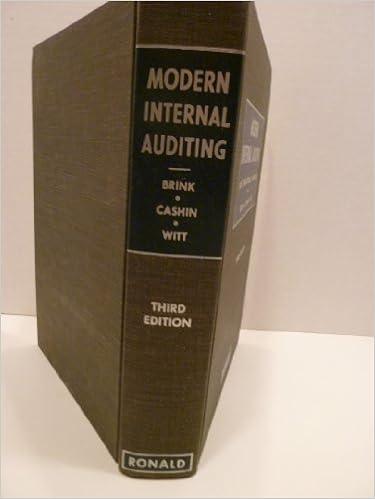Answered step by step
Verified Expert Solution
Question
1 Approved Answer
(10 marks) First, distinguish between an income/expenditure statement and a flow-of-funds statement; then, suppose you are given the following information on the revenues, expenses, assets

(10 marks) First, distinguish between an income/expenditure statement and a flow-of-funds statement; then, suppose you are given the following information on the revenues, expenses, assets and liabilities of a hypothetical Canadian chartered bank for the year 2018, determine the bank's return on assets (ROA), its return on equity (ROE), its liquidity (liquid asset) ratio; and capital adequacy (leverage) ratio. Lastly, construct BOTH the bank's balance sheet statement for the end of the year, 2018 and its income-expenditure statement for that year: Salaries and employee benefit.... $180,000; Interest on deposits.... $290,000; Interest income from loans.. $320,000; Investment income from Government of Canada bonds....$75,000; Interest on non-deposit borrowing....$30,000; Applicable income taxes... $150,000; Occupancy costs....$21,000; Provision for loan losses....$52,000; Miscellaneous expenses.... $8,000; Interest on municipal securities.... $86,000; Service charges on deposits.... $210,000; Miscellaneous operating revenues.... $130,000; Bank equity capital....$70 million; Demand (checking) deposits accounts.$100 million; Savings deposit accounts.....$150 million; Time (fixed term) deposit accounts.....$300 million; Advances (loans) from the central bank.....$12 million; Cash reserves.....$20 million; Other assets....$150 million; Real estate [i.e., mortgage] loans.....$80 million. Government of Canada securities....$25 million; Commercial and industrial loans.... .$300 million; Other liabilities.....$38 million; Municipal securities.....$55 million; Loans to individuals.....$40 million. (50 marks (10 marks) First, distinguish between an income/expenditure statement and a flow-of-funds statement; then, suppose you are given the following information on the revenues, expenses, assets and liabilities of a hypothetical Canadian chartered bank for the year 2018, determine the bank's return on assets (ROA), its return on equity (ROE), its liquidity (liquid asset) ratio; and capital adequacy (leverage) ratio. Lastly, construct BOTH the bank's balance sheet statement for the end of the year, 2018 and its income-expenditure statement for that year: Salaries and employee benefit.... $180,000; Interest on deposits.... $290,000; Interest income from loans.. $320,000; Investment income from Government of Canada bonds....$75,000; Interest on non-deposit borrowing....$30,000; Applicable income taxes... $150,000; Occupancy costs....$21,000; Provision for loan losses....$52,000; Miscellaneous expenses.... $8,000; Interest on municipal securities.... $86,000; Service charges on deposits.... $210,000; Miscellaneous operating revenues.... $130,000; Bank equity capital....$70 million; Demand (checking) deposits accounts.$100 million; Savings deposit accounts.....$150 million; Time (fixed term) deposit accounts.....$300 million; Advances (loans) from the central bank.....$12 million; Cash reserves.....$20 million; Other assets....$150 million; Real estate [i.e., mortgage] loans.....$80 million. Government of Canada securities....$25 million; Commercial and industrial loans.... .$300 million; Other liabilities.....$38 million; Municipal securities.....$55 million; Loans to individuals.....$40 million. (50 marks
Step by Step Solution
There are 3 Steps involved in it
Step: 1

Get Instant Access to Expert-Tailored Solutions
See step-by-step solutions with expert insights and AI powered tools for academic success
Step: 2

Step: 3

Ace Your Homework with AI
Get the answers you need in no time with our AI-driven, step-by-step assistance
Get Started


